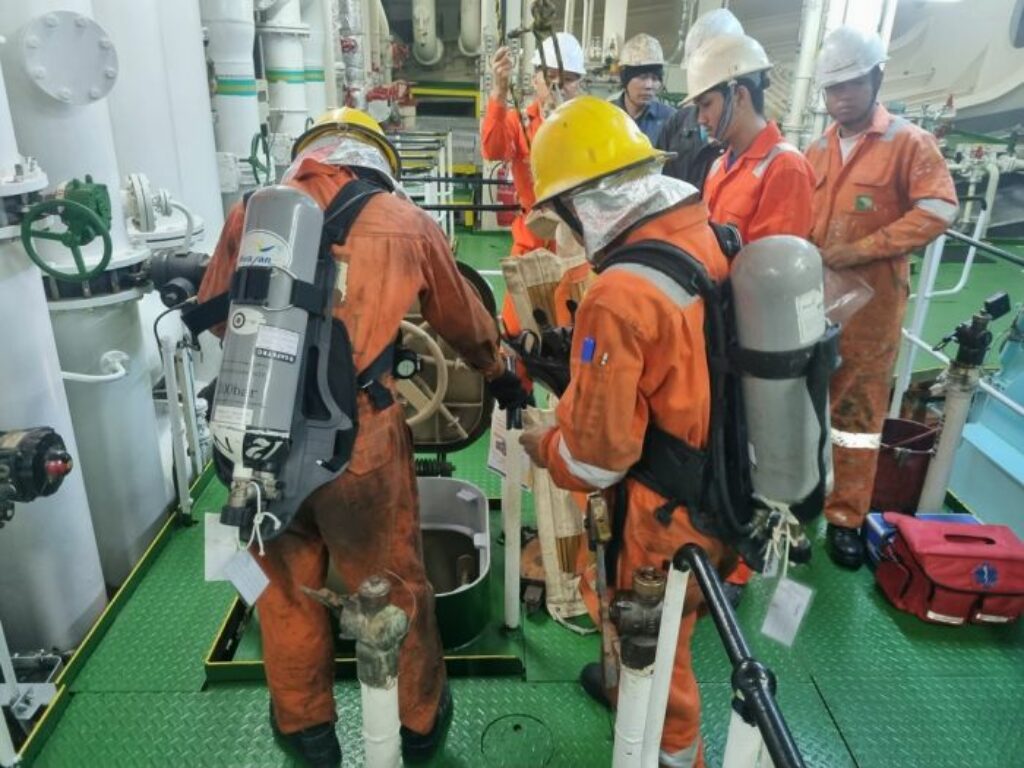
Offshore Drilling Training
Are you looking for a career change? If you don’t mind grease or grime and enjoy challenges, offshore drilling may be just the thing for you.
Related Topics (Sponsored Ads):
As the global demand for energy continues to rise, the offshore drilling industry remains a critical sector, offering lucrative career opportunities for those with the right skills and training. For individuals looking to enter a career in offshore drilling or enhance their existing expertise, choosing the right training program is crucial. This article will explore the top five offshore drilling training programs, providing insights into their offerings, pros and cons, and suitability for different career stages.

National Offshore Training Center (NOTC) - Gulf of Mexico, USA
Located in the heart of the Gulf of Mexico’s oil and gas industry, the National Offshore Training Center offers a comprehensive curriculum designed to meet the evolving needs of both entry level and experienced offshore professionals.
Key Features: Over 80 technical training courses taught by industry experts. Integration of latest industry practices with rigorous safety and compliance mandates. Structured training opportunities for various technical program offices.
Pros:
Highly respected program with strong industry connections
Diverse course offerings covering multiple aspects of offshore operations
Access to cutting-edge technology and equipment
Cons:
Limited to BSEE employees and not open to the general public
Potential waitlists for popular courses due to high demand
Suitability:
Ideal for government employees and those seeking to work as offshore safety inspectors.
Petroleum Extension (PETEX) - University of Texas at Austin, USA
PETEX, affiliated with the University of Texas at Austin, has been a leader in oil and gas industry training for over 75 years, offering a wide range of courses including offshore operations.
Key Features: Rig School program provides a comprehensive curriculum that covers geology, drilling production, and offshore regulations. Includes industry field trips and hands-on training opportunities.
Pros:
~ Long-standing reputation in the industry
~ Offers both in-person and online training options
~ Provides continuing education credits for various professional certifications
Cons:
~ Higher cost compared to some other programs
~ Limited focus specifically on offshore drilling
Suitability:
Well-suited for newcomers to the industry, as well as professionals in related fields, such as attorneys or insurance personnel.
Maersk Training - Multiple Locations Worldwide
With training centers across the globe, Maersk Training offers a wide range of offshore drilling courses, combining theoretical knowledge with practical skills.
Students get state-of-the-art simulation technology for realistic training scenarios. The courses cover well control, drilling optimization, and offshore safety, and are specially customized for specific rig types and operations.
Pros:
~ Global presence allows for training near major offshore drilling hubs
~ Strong emphasis on safety and emergency response training
~ Courses aligned with international standards and certifications
Cons:
~ Higher costs associated with some specialized courses
~ May require travel to specific training centers for certain programs
Suitability:
Excellent for both entry-level and experienced offshore professionals, including drillers, toolpushers, and rig managers.
Aberdeen Drilling School - Aberdeen, Scotland
Located in the heart of the North Sea oil industry, Aberdeen Drilling School offers specialized training for offshore drilling personnel.
Primary Features: Focused curriculum on well control and drilling engineering. Courses are fully accredited and recognized by major industry bodies. It offers a blended learning approach combining classroom instruction with practical exercises.
Pros:
~ Strong reputation in the European offshore drilling sector
~ Intensive courses allowing for quick skill acquisition
~ Regular updates to curriculum based on industry developments
Cons:
~ Limited course offerings compared to some larger training centers
~ Location may be less convenient for those outside Europe
Suitability:
Particularly well-suited for professionals seeking to work in North Sea operations.
PetroSkills - Worldwide Locations
PetroSkills offers a comprehensive range of training programs for the oil and gas industry, including specialized courses in offshore drilling.
Prime Features: An extensive course catalog covering various aspects of offshore operations, with a combination of public courses and customized in-house training options. Includes E-learning and virtual training capabilities.
Pros:
~ Flexibility in training delivery methods (in-person, virtual, blended)
~ Courses taught by experienced industry professionals
~ Strong focus on competency development and career progression
Cons:
~ Some courses may be less hands-on compared to dedicated offshore training centers.
~ Broad focus on oil and gas may mean less specialization in offshore drilling.
Suitability:
Ideal for new entrants to experienced personnel looking to broaden their skill set or move into management roles.
Job Prospects and Career Growth
The offshore drilling industry, while cyclical, continues to offer promising career opportunities and remains in high demand. Career growth prospects are strong for those who continually update their skills and stay abreast of technological advancements in the field.
Key areas of growth include Deepwater and ultra-deepwater drilling operations, enhanced oil recovery techniques, digitalization and automation in offshore operations, as well as environmental and safety compliance roles.
Tips
When selecting a training program, prospective students should consider:
1. Accreditation: Ensure the program is recognized by relevant industry bodies and meets international standards.
2. Hands-on Experience: Look for programs that offer practical training on industry-standard equipment or high-fidelity simulators.
3. Industry Partnerships: Programs with strong connections to offshore drilling companies may offer better networking and job placement opportunities.
4. Curriculum Relevance: Choose a program that covers the latest technologies and practices in offshore drilling.
5. Instructor Qualifications: Seek out programs led by experienced professionals with real-world offshore drilling experience.
6. Flexibility: Consider programs that offer a mix of in-person and online learning options to suit your schedule and learning style.
7. Cost and Duration: Evaluate the program’s cost against your budget and career goals, considering the potential return on investment.
8. Job Placement Assistance: Some programs offer career services or have strong alumni networks that can aid in job searches.
9. Safety Focus: Prioritize programs that emphasize safety protocols and emergency response training, as these are critical in offshore environments.
10. Continuing Education: Look for programs that offer opportunities for ongoing professional development and advanced certifications.




